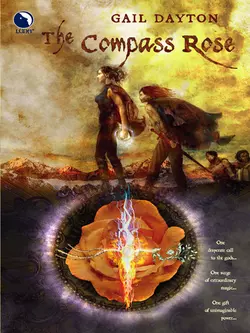The Compass Rose

Gail Dayton
Тип: электронная книга
Жанр: Современная зарубежная литература
Язык: на английском языке
Стоимость: 425.19 ₽
Издательство: HarperCollins
Дата публикации: 16.04.2024
Отзывы: Пока нет Добавить отзыв
О книге: The legends of the Godstruck were just that–legends.Until, in an attempt to defend her people, Captain Kallista Varyl called on the One for aid and was granted abilities such as no one had seen in centuries. Now Kallista has been charged with a new destiny as one of the most powerful women in the land–but her power is useless if it cannot be controlled.Mastering her “Godstruck” abilities is the first step. The next, learning that she cannot unlock the secrets of the Compass Rose and defeat her nation′s enemy alone. And finally she must stop a demon-possessed king….